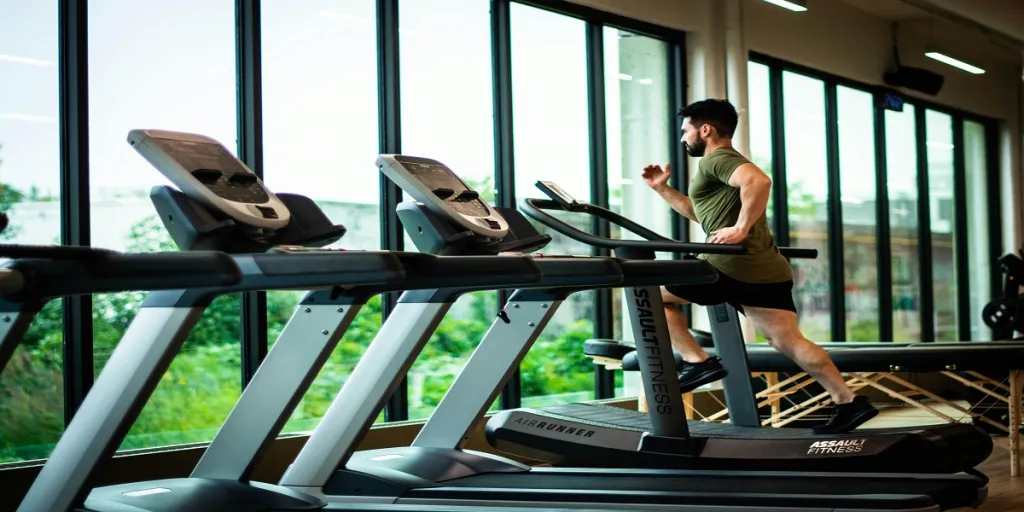By virtue of people taking up sports caused social distancing laws over the past few years, the popularity of cycling has increased significantly. It also helps that cycling doubles as both an exercise and a mode of transportation, with more and more people flocking to the sport and fitting it into their daily routines.
As such, the demand for training equipment has also increased among professionals as well as novices wanting to up their game.
Below, we’ll provide a market overview of cycling training equipment, how best to select them, and highlight the top indoor and outdoor cycling training equipment to look out for in 2024.
Table of Contents
Cycling training equipment market overview
Selection criteria for cycling training equipment
Popular indoor and outdoor cycling training equipment in 2024
Conclusion
Cycling training equipment market overview
The global bicycle market, in part boosted by government initiatives and increased cycling participation, is poised to reach US $128 billion by 2030, a significant jump from US $77 billion in 2021. Regions like the European Union and the United States continue to lead cycling trends, further contributing to the sport’s growth. For example, the Bloomberg Initiative for Cycling Infrastructure (BICI) saw over 275 cities apply for the grant in 2022, highlighting cycling’s role as a sustainable transport option and growing enthusiasm for it around the world.

The surge in cycling’s popularity has also boosted the indoor training segment. The global indoor cycling market is projected to grow at a compound annual growth rate (CAGR) of 10% between 2022 and 2030, potentially doubling its market size from US $1.5 billion in 2021 to US $2.8 billion in 2030. This trend highlights the increasing demand for cycling training equipment and its bright future in the overall cycling market.
Selection criteria for cycling training equipment
Cater to diverse training needs

Cycling training equipment must cater to varying skill levels and training goals, offering advanced features like high resistance and intricate programming for seasoned cyclists, and user-friendly interfaces with adjustable resistance for beginners. This ensures that equipment meets diverse performance needs and provides various modes and programs suitable for different training objectives.
Cater to different training environments

The choice of cycling training equipment should reflect the intended training environment, focusing on versatility in different scenarios. Equipment for outdoor use needs to withstand varied weather conditions, while off-road gear should be able to handle tough terrains, and indoor equipment ought to be compact enough for easy use in limited spaces.
Cater to an eclectic mix of safety and performance
In addition, cycling training equipment should strike a balance between performance and safety, combining both high-performance and safety features that can enhance the training experience without causing injury. For instance, some cycling training gear comes with advanced sensors and displays that help guide the user and optimize their performance. Meanwhile, improved ergonomic designs and materials help to minimize the risk of accidents and discomfort.
Cater to other major sourcing considerations
Brand, product quality, and supplier reputation significantly impact consumer choices, especially when selecting safety-critical training equipment. High-end brands are often equated with quality and durability. Chovm.com users will therefore want to look out for Verified Suppliers and Verified Pro Suppliers, which designate more experienced retailers and manufacturers.
Finally, the rise of IoT necessitates that you consider innovative trends and high-tech components that align with dynamic market changes and technological advancements.
Popular indoor and outdoor cycling training equipment in 2024
Popular indoor cycling training equipment
Smart bike trainers

Google Ads keyword analysis reveals a steady interest in smart bike trainers, with the term attracting around 900 monthly searches over the past year. It also faces ‘high’ competition, indicated by a maximum competition index of 100. The ongoing evolution of smart bike trainer features mean that this equipment has significant growth potential.
As for different types of smart bike trainers, turbo trainers use a basic indoor cycling device that attaches to a bike’s rear wheel and offers adjustable resistance for simulating outdoor rides. The “turbo” element speaks to added internet connectivity and app compatibility, making them a more versatile choice for indoor bike trainers. Smart trainers also boast interconnectivity to various popular fitness apps, like Zwift and Rouvy, providing an interactive training experience.
Smart control trainers connect to other devices via Bluetooth and ANT+, allowing for data exchange. It is vital for smart indoor trainers, especially those equipped with power training, to connect so that they can display real-time power output, which is crucial for monitoring and enhancing a cyclist’s performance.
Furthermore, smart indoor trainers are designed to fit various bike types and wheel sizes, making them ideal for cyclists at all levels. Foldable smart trainers, meanwhile, combine user-friendliness with portability. Their compact and lightweight design makes them easy to set up, dismantle, and store, accommodating users with limited space.
Bike rollers

Likewise, Google Ads analysis indicates ‘high competition’ for “bike rollers,” averaging 1,000 monthly searches in 2023, peaking at nearly 1,900 in February. Bike rollers, as a type of indoor cycling trainer, consist of a frame with three drums (rollers) that provide a realistic road-like experience for indoor cycling. The bike rests directly on these rollers, helping to enhance balance and pedaling techniques.
Constructed from high-quality aluminum, bike rollers are designed for stability and durability, and are suitable for intense workouts. Some, like bike rollers with optional footsteps, offer added safety to ease mounting and dismounting the bike, which is particularly beneficial for beginners.
They are adjustable and fit various bike types, including road bikes and mountain bikes. Features like retractability enhance portability, as seen in this retractable bike roller, which also delivers a realistic ride feel. Modern indoor fitness bike rollers prioritize precision and smart connectivity for performance tracking. They often include HD LED screens for real-time data about speed, distance, power, and cadence, and integrate with apps for enhanced indoor training experiences.
Popular outdoor cycling training equipment
Power meters
Cycling power meters, essential for measuring power output during cycling, particularly on varied terrains, are often integrated into a bike’s drivetrain, like the pedals, cranks, or rear hub. These devices are crucial for targeted training, pacing in races, and monitoring fitness levels. Google Keyword analysis in 2023 shows they averaged 1,600 monthly searches, peaking at 1,900 in August and September, indicating high competition.

Advanced power meters, such as pedal-based power meters with dual-sided measurements, provide detailed leg power and style analysis. Meanwhile, crank-based power meters offer high accuracy within a +/-1-2% range, crucial for precise performance tracking. Power meters supporting ANT+ and Bluetooth ensure easy data transmission to various devices, further enhancing compatibility. Additionally, power meters with features like an IPX7 waterproof rating and extended battery life of up to 270 hours are vital for durability and long-term reliability.
Cycling computers
Cycling computers, essential for both enthusiasts and professionals, measure various parameters like distance, speed, heart rate, and elevation. Despite a lower search volume than the other equipment on this list, they still average over 500 monthly searches on Google Ads.
Modern cycling computers often feature GPS for navigation and outdoor ride tracking. A GPS bike computer, for example, can connect to external sensors like power and heart rate monitors via ANT+ and Bluetooth 4.0. Their large screens help cyclists monitor diverse data and tailor their training plans accordingly.

Smart bike computers, such as this one with a scratch-resistant screen, up to 30 hours of battery life, and Type-C charging, offer reliable performance for extended rides. Meanwhile, this lightweight bike computer provides compatibility with various trainers and power meters, making it ideal for professional cyclists who seek precision without adding bulk.
For customization, GPS cycling computers that come in multiple colors cater to personalization preferences, combining aesthetics and user-friendliness for an individualized cycling experience.
Conclusion
In an ever-expanding international market for cycling and training equipment, sellers must understand customer needs in order to succeed. Cyclists, including everyone from beginners to professionals, will have distinct requirements with regards to which training equipment they’re looking for. These are influenced by their skill level, goals, and whether they train indoors, outdoors, on-road, or off-road. Furthermore, quality, safety, brand reputation, technological advancements, evolving training methods, and innovative features are critical factors in sourcing the right equipment.
The growing popularity of specific indoor and outdoor training gear like bike trainers in 2023 accentuates the need for sellers to stay updated to date on industry trends and customer preferences. It’s crucial to offer the best options to cater to this varied market. Stay informed about industry trends and breakthroughs with Chovm.com Reads, your foremost resource for wholesale business and logistics insights.




